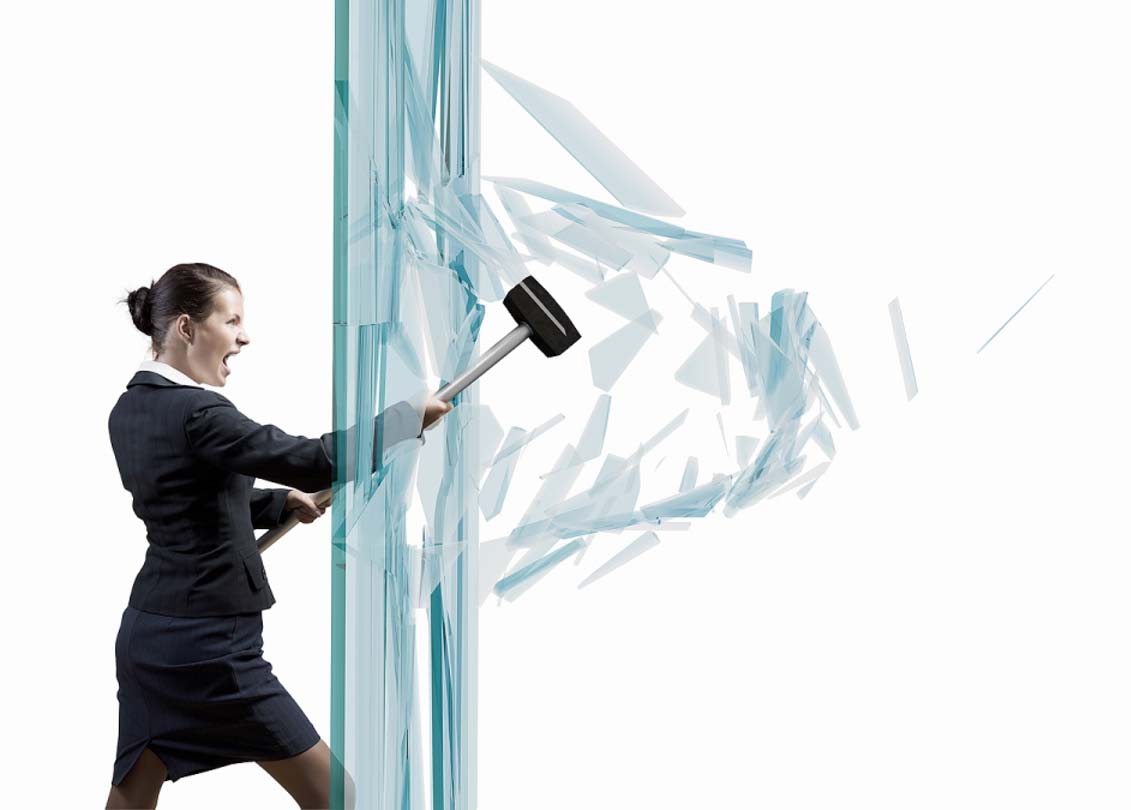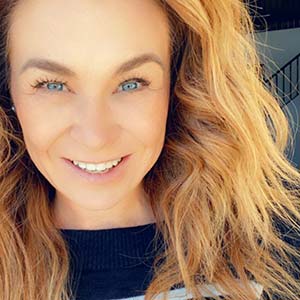SecurityInfoWatch.com: Breaking Security's Glass Ceiling
August 10, 2021
Identiv's Leigh Dow discusses the challenges facing women in the industry and overcoming gender stereotypes
Story originally published by Joel Griffin via SecurityInfoWatch.com.

Despite recent advances, much still needs to be done when it comes to changing perceptions about women in the security industry.
Like many industries, security has traditionally been a field dominated by men across the board – end-users, integrators, and manufacturers alike. Given the backgrounds of many who enter the profession on the end-user side, typically former military or law enforcement officers – both of which have also historically been staffed predominantly by males – that comes as little surprise. But even on the channel and manufacturing side, the number of women, particularly those in prominent positions, in the industry has been noticeably lacking.
However, in more recent years, the industry has taken strides to increase both racial and gender diversity within the companies that comprise the market. In 2018, for example, the Security Industry Association created the SIA Women in Security Forum to support the participation of women in the industry through the creation of various programs as well as by hosting professional development and networking events.
Despite these advances, much still needs to be done when it comes to changing perceptions about women in the industry. One person who has championed the role of women in the industry and the valuable perspectives that they bring to the table is Leigh Dow, Vice President of Marketing at Identiv, the first woman to hold the role at the company.
Dow, who worked as a student in the press office of Florida Gov. Lawton Chiles and later as an intern and staffer for Sen. Bob Graham (D-Fla.), began her career at a law firm focused on governmental affairs but later realized it was not what she wanted to do long-term. She got her start in the tech industry at Intel where she worked for seven years, while also simultaneously earning an MBA. Dow later joined Honeywell, working in the company’s aerospace division and corporate office, before creating her own marketing agency, 48 West Agency, and eventually joining Identiv full time earlier this year.
 Leigh Dow is Vice President of Marketing at Identiv
Leigh Dow is Vice President of Marketing at Identiv
SecurityInfoWatch.com (SIW) recently caught up with Dow to discuss how the role of women has evolved in security and what else the industry needs to be doing to attract more women to its ranks.
SIW: What do you think is the biggest challenge for women working in the security industry?
Dow: It is really establishing your voice. Early in my career, I didn’t study a lot of business or technology in school at first. I was considered an expert on the government affairs aspects that I was influencing at Intel, but I certainly didn’t have a lot of business acumen or technology acumen and I really needed to spend a lot of time educating myself on that because I chose to work in an industry that I didn’t know anything about. I was fortunate that that company was very good about providing education and support for that learning curve. A lot of women and, especially women that I mentor that are younger, it is harder for them to figure out how to establish their voice.
They’ve been given a seat at the table, but they don’t necessarily know yet how to occupy that seat. They haven’t been given the tools, resources, and training that a lot of men get along the way in their education and gratefully, that’s changing. But when I was in school, I didn’t have a group of mentors or people who guided me through how you establish that command presence, how you own your seat at the table, or how do you understand that the lens you are seen through is different. And that’s ok, diversity is great, but you have to understand what that lens is and how to work with that.
I was listening to a podcast recently… and they were talking about how if a woman is asked to do a favor in the business world and she doesn’t do it, it’s perceived very negatively, it’s a performance issue. If a man is asked to do a favor and he doesn’t do it, there is really no consequence and if he does it, it’s like, ‘oh, he’s the best thing that ever happened.’ That’s just one example. Another example would be, if you look at the business world and you look at movies; Gordon Gekko is a criminal, but he’s celebrated. Whereas in ‘The Devil Wears Prada,’ Miranda (Priestly) is running an empire, but she is considered to be the devil incarnate. It’s those kinds of examples that are out there in the world that we are constantly having to bump up against and figure out how we tear down those lenses we are seen through and provide a different one, one that is more accurate and real.
SIW: How far do you think the security and tech industries have evolved when it comes to improving diversity? What are some things that they still need to improve upon?
Dow: I’m pretty new into being solely, firmly footed in the tech industry – I’ve worked with a lot of cybersecurity companies in my career in agency life – but what I’ve noticed is it’s in pockets. I’ve been to several shows and customer visits now and I went to one show, and I felt like a unicorn. There were maybe six women there who weren’t people that worked for the show or were there with their spouse. Other shows though, I just went to ISC West and there were lots of women there, lots of women in senior positions. The associations are doing a good job of stepping up and trying to lead the way. SIA is a great example, I’m one of their TIME (Talent Inclusion Mentorship Education) mentors and I’ve had a great experience with that mentoring someone who works for a different security company and helping her navigate some of the challenges that she is facing, not just as a woman but someone who is new to the industry and a big corporate life.
You see some companies that have firm diversity and inclusion programs, associations that are stepping up to try to guide security towards that mission. Still, you go out to any of these companies’ websites, and you look at their leadership teams, and it doesn’t look terribly diverse yet. That doesn’t make sense in a country like the U.S. where more than 50% of the population is women and we are graduating with graduate degrees, by and large, over men at a higher rate over the past eight years. The wave is coming of these very educated, capable women who are going to fill those seats, it is just when does that tipping point happen.
SIW: Do you still find gender stereotypes prevalent across the business landscape or have these changed?
Dow: I get them in pockets. I wouldn’t have worked for a company like Identiv if I didn’t feel like that didn’t exist there. But I have been at shows and things like that where I’ve still heard men or leaders referring to people on their team as ‘my girls’ or ‘those girls.’ I don’t think it is malicious, I don’t think it is something they are trying to do that’s purposefully negative, but I also don’t think that they understand how women feel about those kinds of terms still being used. It’s more about educating yourself, and it’s not just women but any kind of diversity, on how you can be a better ally to people who are navigating that.
SIW: What are you doing to mentor other women in the industry?
Dow: The business journals across the nation every year have a program they call ‘Mentoring Monday’ and I’ve participated in that every year for past four years, which is almost like mentoring speed dating. Usually, I walk away from that event with several women that I still stay in touch with. I’m also a TIME mentor with SIA and I’m assigned to one particular young woman who I mentor through that program. Through my network from Intel and Honeywell and agency life, I have a couple of other women that I mentor on a regular basis. I also reach out and am mentored by men and women that I’ve worked with in my career and that’s really important to me too.
SIW: What are some resources you would encourage women in the industry to take advantage of as they look to grow their careers?
Dow: Whether your company is going to pay for it, or you have to pay for it yourself, I’m a big believer in owning your own career and investing in yourself. When I worked at Intel, they had this mantra that you own your employability and that has always stuck with me. Anything you can do to be continuous learner, to achieve certifications – even if you don’t want to go back to school and get a graduate degree or something like that. Certifications are really important in our industry, so anything you can do, whether it is program or project management, technical certifications – for me, I work in marketing and marketing changes so frequently, I’m looking at different digital certifications and making sure I’m always brushed up on my skills. Those are things that are sometimes very complex, sometimes very easy to do that really give you a boost in your next role. The other thing I coach people to do in their own development is not to plan for what their very next job is going to be but to plan for two or three jobs after that. That’s how you get a career because if you look at that way then you know what’s my roadmap to getting there, what do I have to do to get there, what skills do I have to acquire, and what certifications do I need.